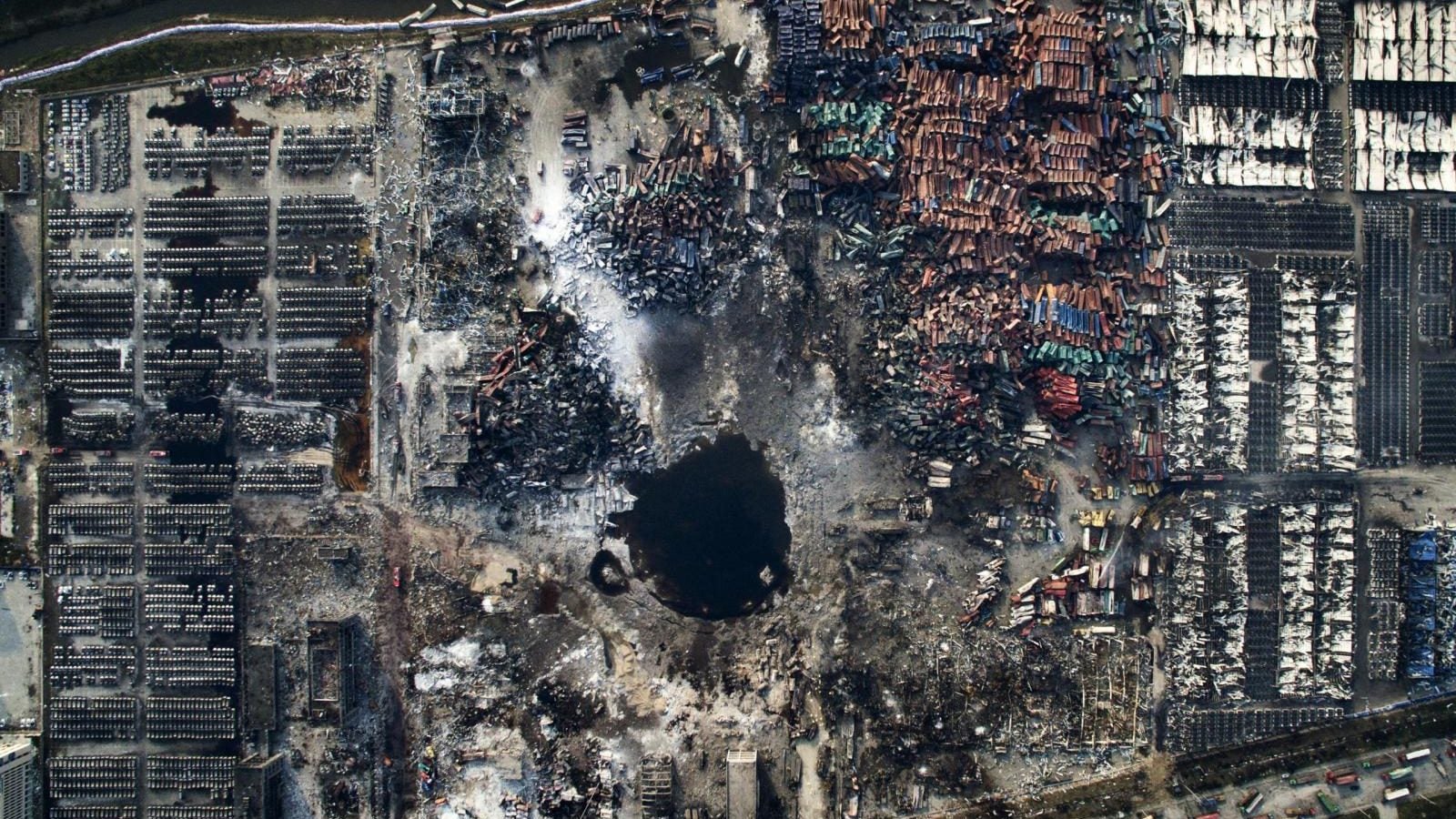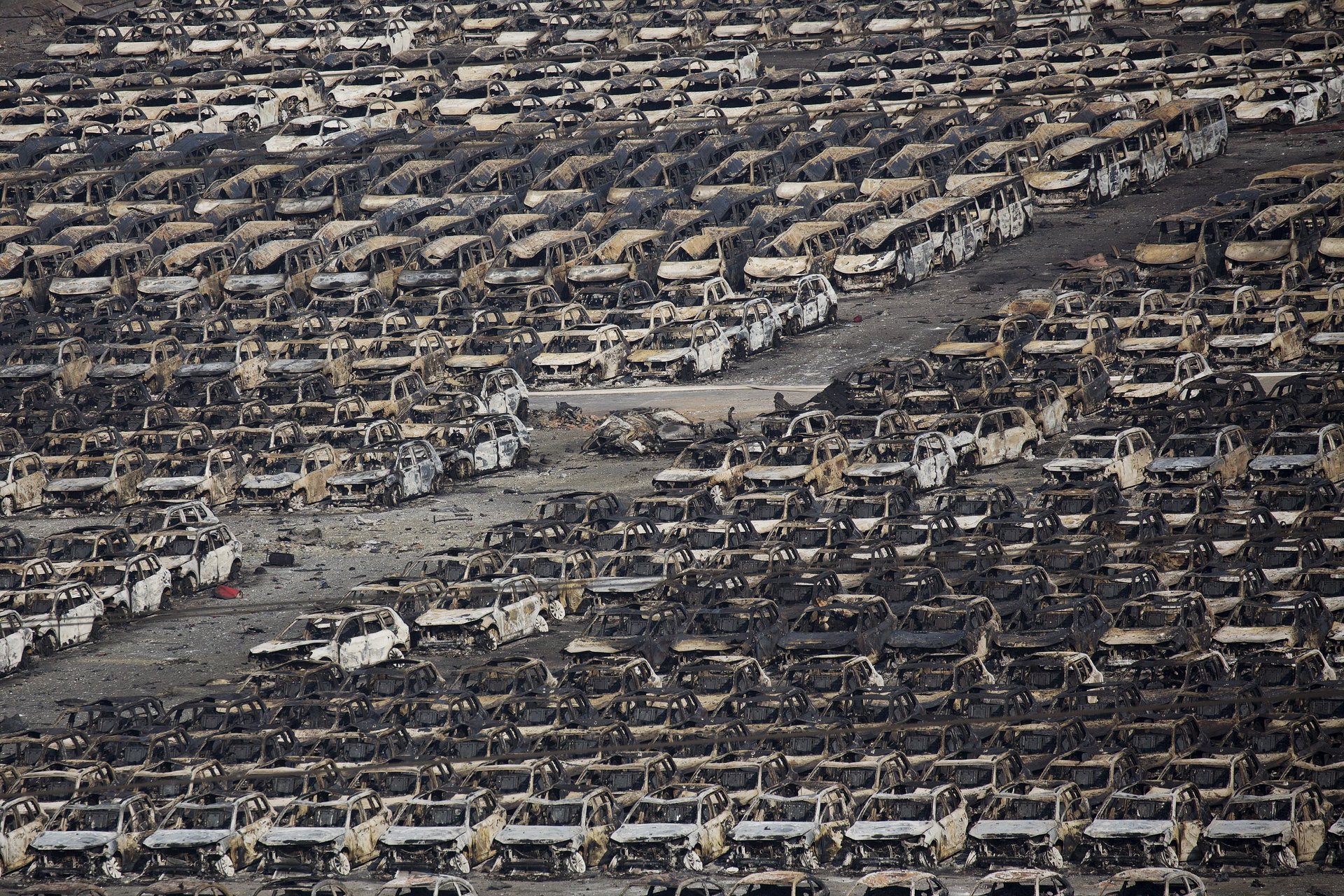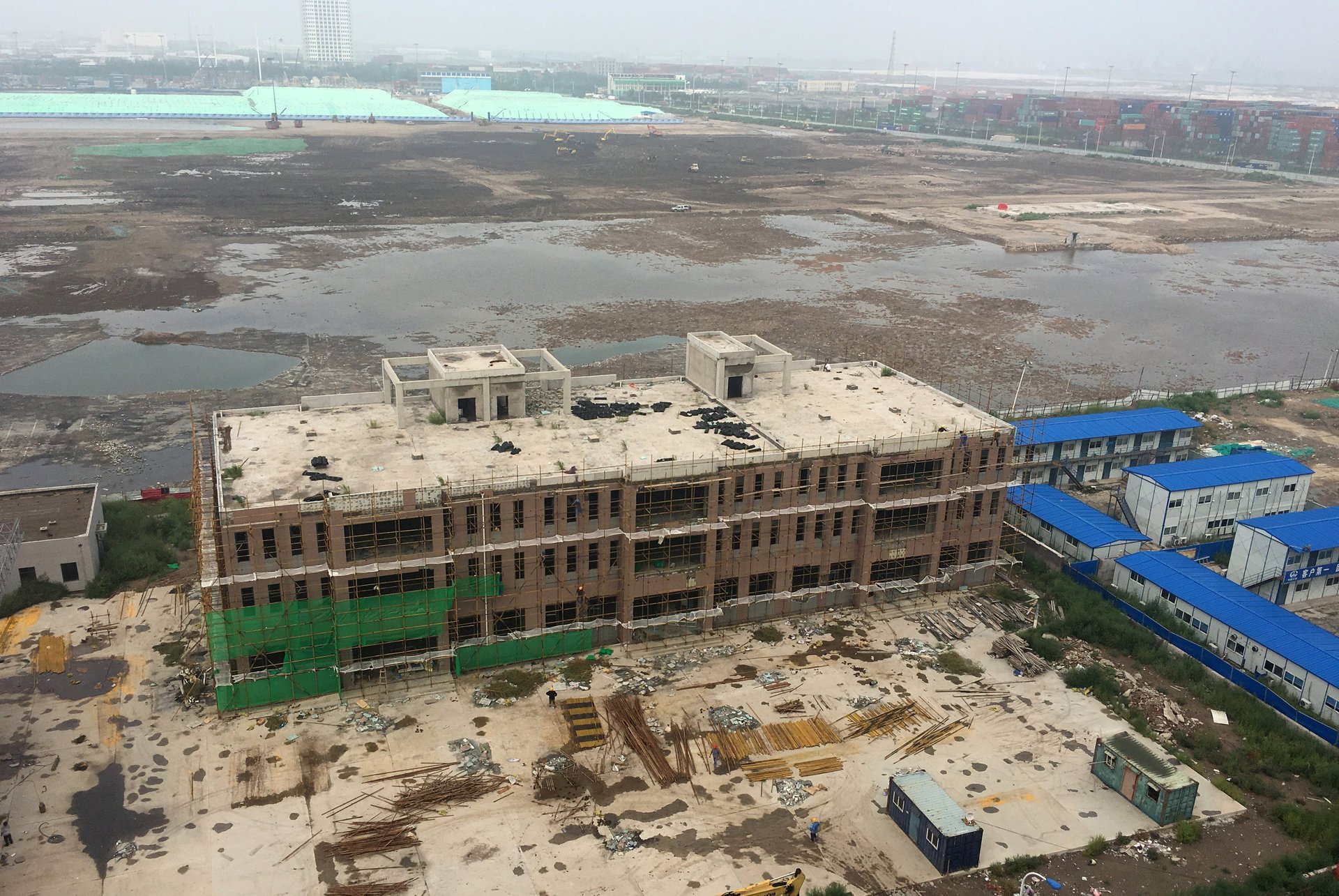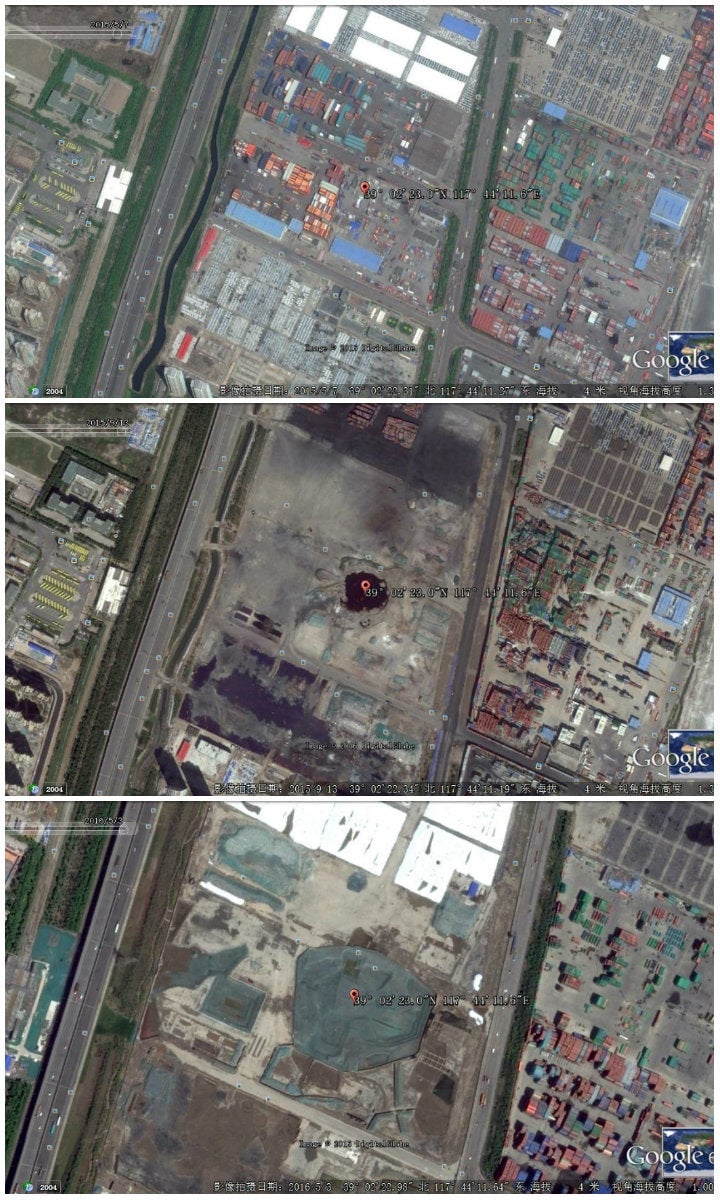A year after the Tianjin blast, public mourning and discussion about it are still censored in China
On Aug. 12 last year, at around 11:30pm, massive explosions rocked the port city of Tianjin in northeast China. Hundreds of firefighters rushed to the scene, but—not prepared for the chemical fires they encountered—ended up making the situation worse, with some losing their lives. The manmade disaster left a steaming black crater.


On Aug. 12 last year, at around 11:30pm, massive explosions rocked the port city of Tianjin in northeast China. Hundreds of firefighters rushed to the scene, but—not prepared for the chemical fires they encountered—ended up making the situation worse, with some losing their lives. The manmade disaster left a steaming black crater.
The Tianjin warehouse explosion, one of the deadliest industrial accidents in decades in China, took a heavy toll on the country. More than 170 were dead or missing, over 300 buildings were damaged, and 10,000 cars were decimated. The total economic loss stands at $1.1 billion, according to China’s cabinet.

The devastating explosions raised serious questions about industrial safety, emergency preparedness, and corruption in China. The culprit of the blasts was a chemicals warehouse that had been illegally operating for years thanks to its owners’ strong political ties.
The rescue work, performed by a group of untrained contract workers, only caused more explosions, and had to be halted in the first couple of hours. The firefighters didn’t know that chemical fires cannot be put out with water, and were unaware they were dealing with such fires in the first place.
Over 120 people, including senior officials, were held responsible for the accident, a long-awaited investigation showed in February.
One year on, the Tianjin blasts remain a deeply sensitive issue for Chinese authorities. About 10 family members of two firefighter victims were arrested by police when they appeared at the blast site to mourn this morning (Aug. 12), Hong Kong newspaper Ming Pao reported (link in Chinese). A group of home owners also protested at the scene to demand the government renovate their damaged apartments, which have been empty for a year, Ming Pao also noted.

A lengthy report published on Aug. 7 in commemoration of the event by financial magazine Caijing (link in Chinese, cached version) has also been censored, along with re-posts of the article on news portals and social networking site Weibo. According to Caijing’s report, in the past year home owners in neighborhoods near the blast were pressured to sell their damaged apartments to state-backed developers at lower-than-market prices.
Former employees at the warehouse company at the center of the explosion were rejected in job interviews for no reason, Caijing reported, and contract firefighters who survived in the accident were banned from training and rescue operations, as their employers treated them differently.
“Why were all the Weibo posts about the Tianjin explosions deleted?” one blogger wrote (link in Chinese) this morning. “Because only when you shut other people’s mouths can you control public opinion.”

In the aftermath, local authorities vowed to turn the blast site into a 24-hectare park to remember the accident. Construction began last November and was due to be completed in July. But the zone remains under construction, with excavators still operating and plastic tarps covering contaminated soils, as shown by this video from the South China Morning Post.
Meanwhile, industrial accidents in China continue unabated. On Thursday (Aug. 11), a steam-pipe explosion at a coal-fired power plant in central China’s Dangyang killed at least 21 people and injured five.
Tom Tsui contributed to this article.